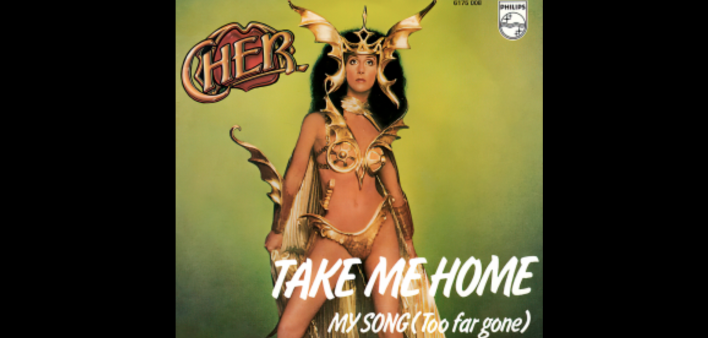Take Me Home is not only a 1979 disco hit by Cher, but also an important initiative to distribute one million free HIV self-tests over the next five years. Click on the link to see if you are eligible. Together Take Me Home is funded by the CDC, in partnership with Emory University, BHOC, NASTAD, Signal Group, and OraSure. Just to be clear, Cher is not involved in this initiative, but I know she supports us! Anyone who could pull off a gold metal bikini with a winged headdress must be on our side.
The CDC says 13% of Americans living with HIV are unaware of their status. June 27th was National HIV Testing Day. I had asked you to post a photo of Cher on your social media and hyperlink to the Take Me Home website (https://bit.ly/takemehome_1). Let’s continue the campaign to raise awareness and inform EVERYONE about free home HIV test kits. Hashtag #Cher, #NMAC and other friends. Ask them to share with their networks. Maybe even the Queen herself will respond; you never know.
Too many people living with HIV are unaware of their status. Shaming never works. This program overcomes two important barriers: it’s free and you can do it at home. Everyone is concerned about privacy, so here is their policy. I’ve worked with the CDC for decades and they take this very seriously.
It took me a long time to take my first HIV test. It was the 1980s and there were no treatments, so I figured “why bother?” I assumed I was positive because there was no difference between me and too many of my friends who were sick and dying. I had enough trauma! I didn’t need to add my HIV status. I was also a scared kid in my 20s with his whole life ahead of him. Did I want to know I was dying when there were no options? Way too late I took the test, to find out I was negative. That result is still a mystery. I did everything and more. I don’t want to add to the stigma of being positive, so I seldom mention my HIV status. I continue to get an annual HIV test. Lately, I do it in solidarity with gay men and not necessarily for me. Technology has changed the way we interact with the world. In the olden days you made an appointment for an HIV test by calling on a phone, walk/drive to your clinic, wait in line in a public space, hear your name getting called, answering questions that could be embarrassing, getting your blood drawn, and waiting. I mean days. Now it can happen in the privacy of your home with proven technology and its free.
Here’s a video explaining how in-home HIV testing works:
The CDC, Emory, BHOC, NASTAD, Signal Group, and OraSure are betting that free and convenient can overcome hesitancy, particularly in the communities hardest hit by HIV. While it’s too early for results, I appreciate the innovation. Our work needs to grow and expand with the times. That means using home testing options that were previously unavailable. Work to end the epidemic must prioritize HIV testing. It is the entry point to care and/or HIV prevention/PrEP.
As we expand our efforts to reach the communities hardest hit by HIV, we need to build and reach their social media. TikTok clearly has an algorithm to identify those influencers. Let’s ask/pay them to post about this initiative. HIV prevention understands the value of reaching communities where they are. Right now, many of them are on social media. Sharing content by telling stories builds an army of influencers who post about HIV. How do we use these tools to increase our HIV testing, PrEP, and U=U numbers? It starts with posting photos of Cher and directing people to the Together Take Me Home webpage.
View this post on Instagram
This is not an NMAC initiative; however, as a CDC PACT leader, we support this important effort. Part of my job is to highlight good work happening across our movement. As a young gay boy, I have many memories of Cher and her Bob Mackie gowns. It’s part of the reason why I knew I was gay. I didn’t want to be with Cher, I wanted to wear her dresses. To be as fierce and outrageous as the original. Cher is part of the pantheon of heroes who helped us survive some very difficult times.
Yours in the Struggle,
Paul Kawata








Comments
Comments